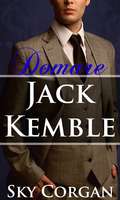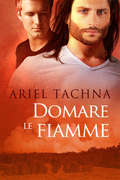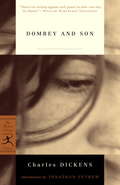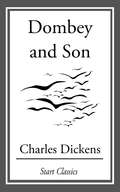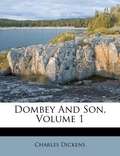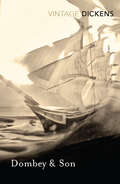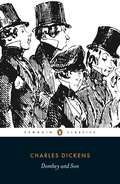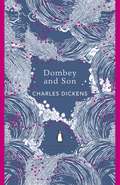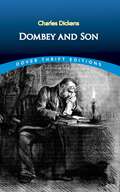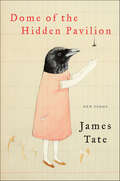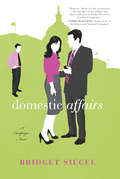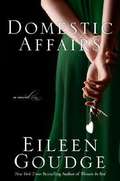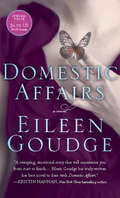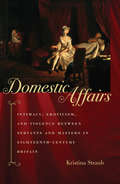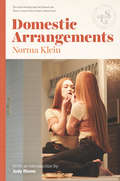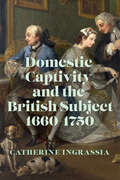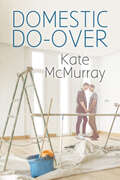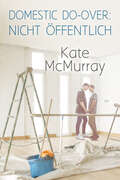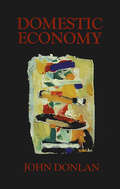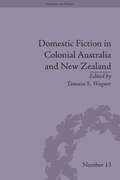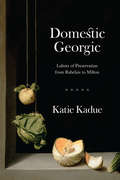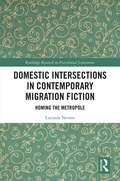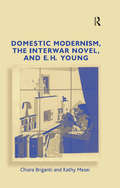- Table View
- List View
Domare Jack Kemble
by Sky CorganDopo una serata imbarazzante nel letto di Jack Kemble, Jennifer si lascia alle spalle la sua vita lussuosa lavorando per la Syngex. Lottando per sbarcare il lunario, si trasferisce con il suo amico Eric, che preferisce il sesso al denaro per il pagamento dell'affitto. Quando una notte ubriaca sfugge di mano, Jennifer si ritrova in una situazione che non si sarebbe mai aspettata. Questa è la quarta parte di una serie.
Domare il Biker
by Veronica Picone Cassie AlexandraIn seguito a due incontri travolgenti con Taylor (alias Tail) Adams, un famigerato e turbolento donnaiolo, Lauren Macey scopre di essere incinta. Non volendo che loro figlio segua lo stile di vita dei club di motociclismo, e sapendo che Tail non è proprio adatto come padre, Lauren decide di non dirglielo. La cosa si rivela difficile, soprattutto quando capisce che nessuno dei due è pronto a chiudere quella storia passionale. Questa storia contiene un linguaggio volgare, situazioni di tipo sessuale e violenza. Non è adatta ai lettori che abbiano meno di 18 anni. Per favore, non compratelo se queste cose vi offendono. Questa è un'opera di fantasia e non si pone come vera rappresentazione dei club di motociclismo. È stata scritta per puro intrattenimento.
Domare le fiamme (Lang Downs (Italiano) #4)
by Ariel Tachna Claudia MilaniSeguito di Superare la notteSerie Lang Downs, Libro 4Thorne Lachlan sa un paio di cose riguardo allo sfuggire al fuoco. Per anni ha combattuto insieme al suo reparto di Commando nei conflitti più caldi del pianeta. E ora che si è congedato combatte un altro tipo di fuoco insieme al Servizio Protezione Incendi. Quando una questione di servizio lo porta a Lang Downs, una stazione in pericolo di essere divorata dalle fiamme, conosce Ian Duncan, e la scintilla fra loro è immediata. Entrambi gli uomini sono però perseguitati dai ricordi del loro passato e ciò impedisce loro di dare libero sfogo all'attrazione che li unisce. Se da una parte Thorne desidera intensamente ricostruirsi una vita insieme a Ian in un luogo da poter finalmente chiamare casa, dall'altra teme che la propria instabilità possa rappresentare un pericolo per le altre persone che abitano nella stazione. Ian, dal canto suo, ha sempre pensato che l'incubo da cui è fuggito quando era ancora solo un adolescente gli avrebbe reso impossibile intrattenere qualsiasi tipo di rapporto sentimentale. La fiducia sembra qualcosa di impossibile per entrambi, finché le conseguenze dell'incendio non li costringeranno a guardare al di là delle cicatrici che sembrano impedire loro di guarire.
Dombey and Son
by Charles Dickens Jonathan LethemDombey and Son, Charles Dickens's story of a powerful man whose callous neglect of his family triggers his professional and personal downfall, showcases the author's gift for vivid characterization and unfailingly realistic description. As Jonathan Lethem contends in his Introduction, Dickens's "genius . . . is at one with the genius of the form of the novel itself: Dickens willed into existence the most capacious and elastic and versatile kind of novel that could be, one big enough for his vast sentimental yearnings and for every impulse and fear and hesitation in him that countervailed those yearnings too. Never parsimonious and frequently contradictory, he always gives us everything he can, everything he's planned to give, and then more." This Modern Library Paperback Classic was set from the 1867 "Charles Dickens" edition.From the Trade Paperback edition.
Dombey and Son
by Charles DickensPaul Dombey is a heartless London merchant who runs his domestic affairs as he runs his business. In the tight orbit of his daily life there is no room for dealing with emotions because emotion has no market value. In his son he sees the future of his firm and the continuation of his name, while he neglects his affectionate daughter, until he decides to get rid of her beloved, a lowly clerk. But Dombey's weakness is his pride, and he falls prey to the treacherous flattery of others. Combining an intricate plot, vivid language, and Dickens's customary social commentary, Dombey and Son, explores the possibility of moral and emotional redemption through familial love.
Dombey and Son
by Charles DickensWith an Introduction and Notes by Karl Ashley Smith, University of St Andrews Mr Dombey is a man obsessed with his firm. His son is groomed from birth to take his place within it, despite his visionary eccentricity and declining health. But Dombey also has a daughter, whose unfailing love for her father goes unreturned. 'Girls' said Mr Dombey, 'have nothing to do with Dombey and Son'. When Walter Gay, a young clerk in her father's office, rescues her from a bewildering experience in the streets of London, his unforgettable friends believe he is well on his way to receiving her hand in marriage and inheriting the company. It is to be a very different type of story.
Dombey and Son
by Charles DickensPaul Dombey is an ambitious London merchant. He pins all his hopes for the future of his shipping firm on his fragile son whilst his daughter, Florence, goes unnoticed and neglected. It is only when the firm faces ruin, and Dombey is staring at a life of desolate solitude that Florence may finally be valued. Can this heartless businessman be redeemed? Dombey and Son is a delicious and lively satire about pride and its downfall.
Dombey and Son
by Charles Dickens'There's no writing against such power as this - one has no chance' William Makepeace ThackerayA compelling depiction of a man imprisoned by his own pride, Dombey and Son explores the devastating effects of emotional deprivation on a dysfunctional family. Paul Dombey runs his household as he runs his business: coldly, calculatingly and commercially. The only person he cares for is his little son, while his motherless daughter Florence is merely a 'base coin that couldn't be invested'. As Dombey's callousness extends to others, including his defiant second wife Edith, he sows the seeds of his own destruction.Edited with an Introduction and Notes by Andrew Sanders
Dombey and Son
by Charles Dickens'The earth was made for Dombey and Son to trade in, and the sun and moon were made to give them light'Dombey and Son is both a firm and a family and the ambiguous connection between public and private life lies at the heart of Dickens' novel. Paul Dombey is a man who runs his domestic affairs as he runs his business: calculatingly, callously, coldly and commercially. Through his dysfunctional relationships with his son, his two wives, and his neglected daughter Florence, Dickens paints a vivid picture of the limitations of a society dominated by commercial values and the drive for profit and explores the possibility of moral and emotional redemption through familial love.The Penguin English Library - 100 editions of the best fiction in English, from the eighteenth century and the very first novels to the beginning of the First World War.
Dombey and Son (Dover Thrift Editions)
by Charles DickensWealthy shipping merchant Paul Dombey runs his family like he runs his business, with coldness and calculation. When his wife dies giving birth to their second child and long hoped-for heir, Dombey remains preoccupied only with the importance of passing the firm along to his son. Lost in this narrow, obsessive view is Dombey's older child, Florence, who yearns for his attention but receives only an indifference that eventually curdles into outright hatred. <P><P> Published midway through the author's career, this 1848 novel marked a new maturity in Charles Dickens' writing. Less an examination of socioeconomic conditions and more of an exploration of emotional deprivation and fulfillment, it offers the satirical indignation of the storyteller's early fiction with an added darkness and narrative complexity. An absorbing plot and memorable characters combine to form a compelling tale of greed, poor judgment, and the redemptive power of love.
Dome of the Hidden Pavilion: New Poems
by James TateThe seventeenth book of verse from one of America’s finest and most acclaimed contemporary poets—winner of the Pulitzer Prize and the National Book Award.Capturing his inimitable voice—provocative, amusing, understated, and riotous all at once—the poems in Dome of the Hidden Pavilion demonstrate James Tate at his finest. Innovative and fresh, they range in subject from a talking blob to a sobering reminiscence of a war and its aftereffects.Though they are diverse in scope, a theme of dialogue and communication—and often miscommunication—links these poems. Accessible yet subtly surrealist, filled with dark wit, dry humor, and a deceptive simplicity, Dome of the Hidden Pavilion confirms Tate’s continuing relevance as one of the most celebrated American poets of the modern age.
Domestic Affairs
by Bridget SiegelSex and politics dominate national headlines, but what do these dangerous dalliances look like from inside? Bridget Siegel--veteran of John Edwards's and Barack Obama's presidential bids--tells a provocative, page-turning tale of a talented young woman who falls in love and in bed with the wrong White House candidate.
Domestic Affairs
by Eileen Goudge"Rosie and Abigail are like family," Ina Merriweather used to say. That is, until the day Ina abruptly cast out her housekeeper, Rosie, and her fifteen-year-old daughter Abigail. Abigail felt deeply betrayed, especially by Ina's daughter Lila, who was her closest friend. Only Lila's twin brother Vaughn, with whom Abigail had been exploring the joys and heartaches of first love, showed any compassion. Now, twenty-five years later, an old score is about to be settled...and an old love rekindled. Abigail is now a self-made woman who has built an empire out of the homemaking skills she learned from her mother. When Lila, who married well and for decades lived the glittering life of a Park Avenue socialite, suffers a tragic reversal of fortune, an opportunity to right an old wrong lands squarely in Abigail's lap. Lila seeks the help of her childhood friend, but learns that the only opening available at the moment is as her housekeeper and Lila has no choice but to accept. At the same time, Abigail is coping with the fallout from a fire in her Mexico factory, which took the life of an innocent girl, whose mother, Concepción Morales, now seeks the rich señora she holds responsible for her daughter's death. In a collision of fate, Abigail, Lila, and Concepción are thrown together and must unite to save one another...and themselves.
Domestic Affairs
by Eileen GoudgeFrom The New York Times Bestselling author of Woman in Red comes an intimate story of friendship lost and regained, old loves rekindled, and a baptism by fire that ultimately leads to the redemption of three very special women.It begins with a betrayal that tears apart childhood friends, Abigail and Lila, when Abigail's mother, the housekeeper for Lila's wealthy family, is summarily banished, casting Abigail from the only home she has ever known. Now, twenty-five years later, Abigail is a self-made successful cookbook author and TV personality. When Lila--who married well and for decades lived the glittering life of a Park Avenue socialite--suffers a tragic reversal of fortune, she seeks out the help of her childhood friend. Penniless and all but unemployable, Lila approaches Abigail about a job, and Abigail gives her one: as her housekeeper.But revenge is not as sweet as Abigail had imagined. Lila's reentry into Abigail's life brings along some unexpected complications and questions: Will Abigail be reunited with her girlhood love, Lila's twin brother, Vaughn? Will Concepción, the grief-stricken mother whose daughter perished in the fire that consumed Abigail's factory, succeed in crossing the border to track Abigail down and confront her? Will Lila ever find love in the wake of her husband's suicide?In this sweeping emotional tale, Abigail, Lila, and Concepción are thrown together and forced to unite in order to save one another...and themselves.
Domestic Affairs: Intimacy, Eroticism, and Violence between Servants and Masters in Eighteenth-Century Britain
by Kristina StraubFrom Daniel Defoe’s Family Instructor to William Godwin’s political novel Caleb Williams, literature written for and about servants tells a hitherto untold story about the development of sexual and gender ideologies in the early modern period. This original study explores the complicated relationships between domestic servants and their masters through close readings of such literary and nonliterary eighteenth-century texts. The early modern family was not biologically defined. It included domestic servants who often had strong emotional and intimate ties to their masters and mistresses. Kristina Straub argues that many modern assumptions about sexuality and gender identity have their roots in these affective relationships of the eighteenth-century family. By analyzing a range of popular and literary works—from plays and novels to newspapers and conduct manuals—Straub uncovers the economic, social, and erotic dynamics that influenced the development of these modern identities and ideologies.Highlighting themes important in eighteenth-century studies—gender and sexuality; class, labor, and markets; family relationships; and violence—Straub explores how the common aspects of human experience often intersected within the domestic sphere of master and servant. In examining the interpersonal relationships between the different classes, she offers new ways in which to understand sexuality and gender in the eighteenth century.
Domestic Arrangements
by Judy Blume Norma KleinOriginally published in 1982, Domestic Arrangements is the story of a fourteen-year-old New York teen named Tatiana, an unintentional ingénue who becomes notorious for filming a nude scene for a major movie. Tatiana's newfound fame--which includes interviews, magazine covers, and publicists--is set against the backdrop of an increasingly adult personal life, as her parents file for divorce, her sister becomes increasingly jealous of her sibling's success, and she finally chooses between an old boyfriend and new, older loves. A stunning example of Norma Klein's fearless take on the complexities of adolescence, Domestic Arrangements is an indelible portrait of a girl on the cusp of adulthood, learning to balance the challenges of life in the spotlight with love, family, and friendship. This edition features a brand new introduction by Norma's long-time friend, renowned children's author Judy Blume.Norma Klein was best known for young adult works that dealt with family problems, childhood and adolescent sexuality, as well as social issues like racism, sexism, and contraception. Her first novel, Mom, the Wolf Man and Me (1972), was about the daughter of an unmarried, sexually active woman. Her subsequent works included Sunshine, It's Okay If You Don't Love Me, Breaking Up, and Family Secrets. Because of their subject matter, many of her books sparked considerable controversy, and a 1986 American Library Association survey found that nine of her novels had been removed from libraries. In an interview that same year with the New York Times, Klein said: 'I'm not a rebel, trying to stir things up just to be provocative. I'm doing it because I feel like writing about real life.' She died in 1989 at the age of fifty.
Domestic Captivity and the British Subject, 1660–1750
by Catherine IngrassiaIn seventeenth- and eighteenth-century Britain, captivity emerged as a persistent metaphor as well as a material reality. The exercise of power on both an institutional and a personal level created conditions in which those least empowered, particularly women, perceived themselves to be captive subjects. This "domestic captivity" was inextricably connected to England’s systematic enslavement of kidnapped Africans and the wealth accumulation realized from those actions, even as early fictional narratives suppressed or ignored the experience of the enslaved. Domestic Captivity and the British Subject, 1660–1750 explores how captivity informed identity, actions, and human relationships for white British subjects as represented in fictional texts by British authors from the period.This work complicates interpretations of canonical authors such as Aphra Behn, Richard Steele, and Eliza Haywood and asserts the importance of authors such as Penelope Aubin and Edward Kimber. Drawing on the popular press, unpublished personal correspondence, and archival documents, Catherine Ingrassia provides a rich cultural description that situates literary texts from a range of genres within the material world of captivity. Ultimately, the book calls for a reevaluation of how literary texts that code a heretofore undiscussed connection to the slave trade or other types of captivity are understood.
Domestic Do-over (The Restoration Channel Series #1)
by Kate McMurrayA Restoration Channel NovelCan a prickly carpenter build a reality TV host a way out of the closet? Real estate guru Brandon Chase knows what “family friendly” means in the biz, and it’s not being open about his sexuality. The end of Brandon’s marriage is still making headlines when the Restoration Channel makes him an offer: helm a show about flipping houses in New York City’s risky market. Still smarting from the bad press, Brandon is reluctant to get involved—until he falls in love with an old Victorian. Except the house isn’t the only thing that catches his eye. It’s contractor Travis Rogers’s job to enumerate every way a renovation could go wrong, which leads to a lot of on-set sparring and mutual frustration between him and Brandon. But when the simmering attraction underneath boils over, the show and their relationship hang in the balance. Travis hates the media attention that follows Brandon, and the network has a history of firing LGBTQ personalities. Like the houses Brandon makes over, this relationship has potential. But if Brandon can’t convince Travis to take a chance, their chemistry might stay on-screen only.
Domestic Do-over: Nicht öffentlich (Restoration Channel (Deutsch))
by Kate McMurrayKann ein kratzbürstiger Zimmermann einem Reality-TV Moderator einen Weg zum Coming Out bauen?Immobilienguru Brandon Chase weiß, was „familienfreundlich&” in der Branche bedeutet, nämlich nicht offen über seine Sexualität zu sein.Das Aus von Brandons Ehe ist immer noch in den Schlagzeilen, als der Restoration Channel ihm ein Angebot macht: Er soll eine Serie über den Verkauf von Häusern auf dem riskanten Markt von New York City moderieren. Brandon, der immer noch unter der schlechten Presse leidet, zögert, sich darauf einzulassen – bis er sich in ein altes viktorianisches Haus verliebt.Doch das Haus ist nicht das einzige, das ihm ins Auge fällt.Der Bauauftragsnehmer Travis Rogers hat die Aufgabe, all die Dinge aufzulisten, die beim Umbau und der Renovierung eines Hauses schiefgehen können, was zu einer Menge Streitereien am Set und zu beiderseitigem Frust führt. Doch als die unter der Oberfläche schwelende Anziehungskraft zwischen den beiden Männern auflodert, stehen die Sendung und ihre Beziehung auf dem Spiel.Travis hasst das Medieninteresse, das Brandon verfolgt und der Sender hat in der Vergangenheit immer wieder LGBTQ-Persönlichkeiten entlassen. Wie die Häuser, die Brandon zum Verkauf renoviert, hat auch diese Beziehung Potenzial. Aber wenn Brandon Travis nicht überzeugen kann, ein Risiko einzugehen, bleibt die Chemie zwischen ihnen wohl nur auf der Leinwand.
Domestic Economy
by John DonlanA sequence of fifty dated poems, four quatrains each; lyrical arguments; quick thinking amid the rational absurdity of everyday machinery; intuitive explorations of unknown energies; a diary of the unconscious.
Domestic Fiction in Colonial Australia and New Zealand (Gender and Genre #13)
by Tamara S WagnerColonial domestic literature has been largely overlooked and is due for a reassessment. This essay collection explores attitudes to colonialism, imperialism and race, as well as important developments in girlhood and the concept of the New Woman.
Domestic Georgic: Labors of Preservation from Rabelais to Milton
by Katie KadueInspired by Virgil’s Georgics, this study conceptualizes Renaissance poetry as a domestic labor. When is literary production more menial than inspired, more like housework than heroics of the mind? In this revisionist study, Katie Kadue shows that some of the authors we credit with groundbreaking literary feats—including Michel de Montaigne and John Milton—conceived of their writing in surprisingly modest and domestic terms. In contrast to the monumental ambitions associated with the literature of the age, and picking up an undercurrent of Virgil’s Georgics, poetic labor of the Renaissance emerges here as often aligned with so-called women’s work. Kadue reveals how male authors’ engagements with a feminized georgic mode became central to their conceptions of what literature is and could be. This other georgic strain in literature shared the same primary concern as housekeeping: the necessity of constant, almost invisible labor to keep the things of the world intact. Domestic Georgic brings into focus a conception of literary—as well as scholarly and critical—labor not as a striving for originality and fame but as a form of maintenance work that aims at preserving individual and collective life.
Domestic Intersections in Contemporary Migration Fiction: At Home in the Metropole
by Lucinda NewnsHoming the Metropole presents a new approach to diasporic fiction that reorients postcolonial readings of migration away from processes of displacement and rupture towards those of placement and homemaking. While notions of home have frequently been associated with essentialist understandings of nation and race, an uncritical investment in tropes of homelessness can prove equally hegemonic. By synthesising postcolonial and intersectional feminist theory, this work establishes the migrant domestic space as a central location of resistance, countering notions of the private sphere as static, uncreative and apolitical. Through close readings of fiction emerging from the African, Caribbean and South Asian diasporas, it reassesses our conception of home in light of contemporary realities of globalisation and forced migration, providing a valuable critique of the celebration of unfixed subject positions that has been a central tenet of postcolonial studies.
Domestic Malice, A Murder She Wrote Mystery
by Donald Bain Jessica FletcherJessica is volunteering at the Cabot Cove women's shelter when a woman walks in bruised physically and mentally. Her husband is a well-respected businessman in town. Could this paragon of virtue be abusing his wife? Despite Jessica's support and advice, the woman refuses to stay at the shelter or press charges.
Domestic Modernism, the Interwar Novel, and E.H. Young
by Kathy Mezei Chiara BrigantiDomestic Modernism, the Interwar Novel, and E. H. Young provides a valuable analytical model for reading a large body of modernist works by women, who have suffered not only from a lack of critical attention but from the assumption that experimental modernist techniques are the only expression of the modern. In the process of documenting the publication and reception history of E. H. Young's novels, the authors suggest a paradigm for analyzing the situation of women writers during the interwar years. Their discussion of Young in the context of both canonical and noncanonical writers challenges the generic label and literary status of the domestic novel, as well as facile assumptions about popular and middlebrow fiction, canon formation, aesthetic value, and modernity. The authors also make a significant contribution to discussions of the everyday and to the burgeoning field of 'homeculture,' as they show that the fictional embodiment and inscription of home by writers such as Young, Virginia Woolf, Elizabeth Bowen, Ivy Compton-Burnett, Lettice Cooper, E. M. Delafield, Stella Gibbons, Storm Jameson, and E. Arnot Robertson epitomize the long-standing symbiosis between architecture and literature, or more specifically, between the house and the novel.
